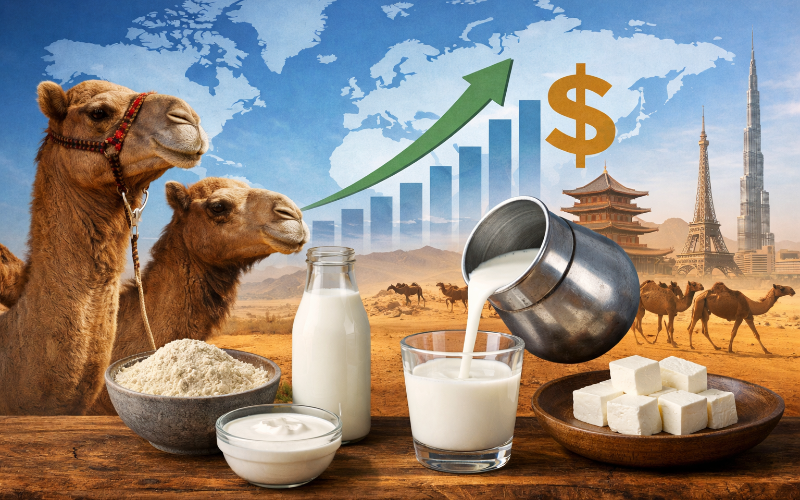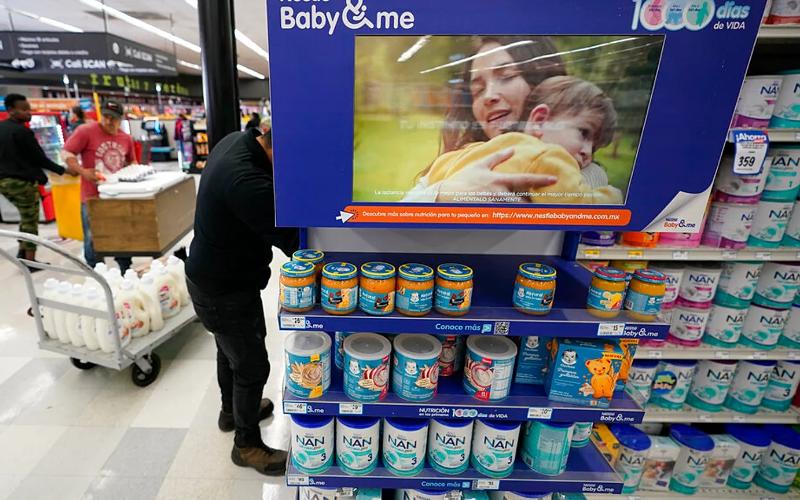China Expands Anti-Subsidy Probe on EU Dairy Imports
China announced on Friday that it will broaden the scope of its anti-subsidy investigation into dairy imports from the European Union (EU), including additional subsidy programs from Denmark, France, Italy, and the Netherlands. The move comes amid escalating trade tensions between the two economic powerhouses.

The investigation, launched in August, targets imports of cheese, milk, and cream from the EU following the bloc’s decision to impose tariffs on Chinese electric vehicles (EVs). New EU tariffs of up to 45.3% on Chinese EV imports took effect on October 30, prompting Beijing to urge EU member states to advocate for a resolution that aligns with the interests of both sides' EV industries.
In a statement, China’s Ministry of Commerce said the expanded inquiry will not cover additional dairy products but will include questions about new subsidy programs in its questionnaires to EU firms. The decision, it said, was made after receiving a request from China's dairy industry and consulting with EU representatives.
"On Nov. 19, the investigating authorities held consultations with EU representatives regarding the new programs to be added," the ministry noted.
The European Union is China’s second-largest source of dairy imports, trailing only New Zealand, according to Chinese customs data. For the EU, China ranks as the second-largest destination for skimmed milk powder exports and the fourth-largest for both butter and whole milk powder, EU trade figures show.
The investigation reflects growing friction between the EU and China, with the dairy probe seen as a response to the bloc’s recent trade measures against Chinese industries. While China has urged dialogue to address these disputes, the expanded scope of the dairy inquiry signals Beijing's intent to scrutinize EU subsidies more closely.
As the investigation continues, both sides will face increasing pressure to balance trade relations and safeguard key industries amid broader geopolitical and economic challenges.
In a statement, China’s Ministry of Commerce said the expanded inquiry will not cover additional dairy products but will include questions about new subsidy programs in its questionnaires to EU firms. The decision, it said, was made after receiving a request from China's dairy industry and consulting with EU representatives.
"On Nov. 19, the investigating authorities held consultations with EU representatives regarding the new programs to be added," the ministry noted.
The European Union is China’s second-largest source of dairy imports, trailing only New Zealand, according to Chinese customs data. For the EU, China ranks as the second-largest destination for skimmed milk powder exports and the fourth-largest for both butter and whole milk powder, EU trade figures show.
The investigation reflects growing friction between the EU and China, with the dairy probe seen as a response to the bloc’s recent trade measures against Chinese industries. While China has urged dialogue to address these disputes, the expanded scope of the dairy inquiry signals Beijing's intent to scrutinize EU subsidies more closely.
As the investigation continues, both sides will face increasing pressure to balance trade relations and safeguard key industries amid broader geopolitical and economic challenges.










